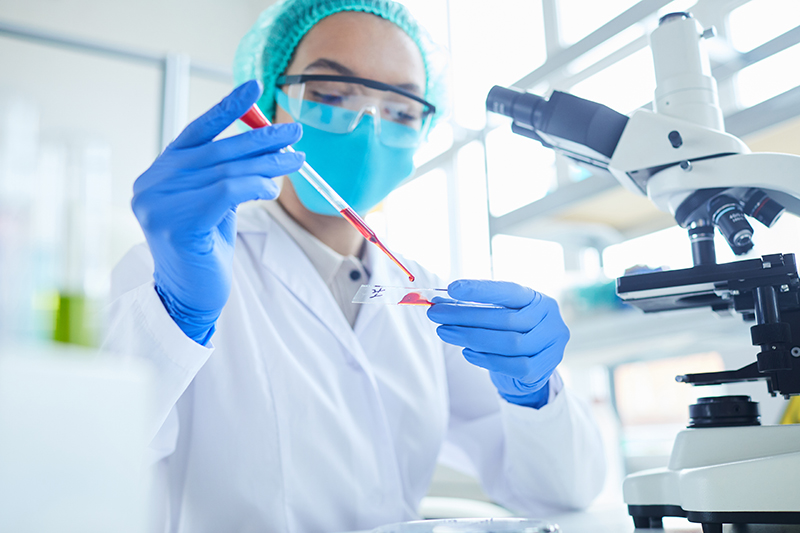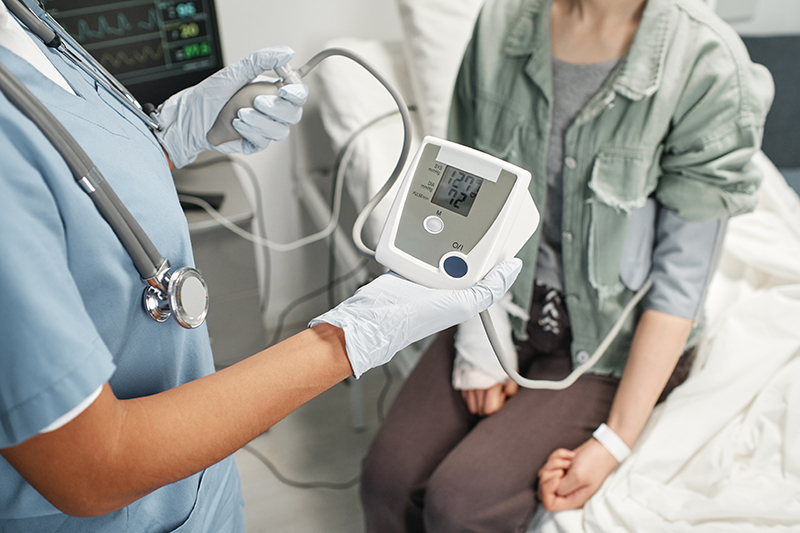Bio-degradable cards
Every card imaginable!
|
Bio-degradable cards Every card imaginable! Anticoagulants Their Uses and Effects on Long-term Health
Understanding Anticoagulants: What They Are and How They Work
What Are Anticoagulants?Anticoagulants are medications that play a vital role in preventing dangerous blood clots from forming in your body, particularly within your veins, arteries, or heart. You've probably heard them called "blood thinners," which is a common and easy nickname, but it's actually a little misleading. These medications don't literally make your blood watery or thinner. Instead, they work by carefully interrupting your blood's ability to clot too easily or too much. Your body's ability to form a clot is absolutely essential—it's what stops you from bleeding out when you get a cut. This is a very complex, yet natural, process involving several proteins in your blood called clotting factors. However, sometimes this clotting system goes rogue, forming a clot inside a blood vessel when it's not needed. When that happens, the clot can block the normal flow of blood, leading to very serious, life-threatening conditions. For example, a clot could form in a deep vein (a DVT), travel to your lungs (a pulmonary embolism or PE), or cause a stroke if you have an irregular heartbeat like atrial fibrillation (A-fib). This is where anticoagulants come in. They are lifesavers because they stop those potentially deadly clots from ever forming in the first place, or they prevent small, existing clots from growing larger and causing bigger problems. It's important to know that these drugs are great at prevention, but they generally don't dissolve a clot that's already fully formed—that's a different kind of medicine. Their job is simply to help keep your blood flowing smoothly and safely.
How do you take anticoagulants?How you take an anticoagulant really depends on the specific drug you've been prescribed and why you need it. There are a few different ways these medications are administered:
No matter the method, following your doctor's instructions to the letter is absolutely crucial. Never skip a dose, double up on a dose, or stop taking the medication without speaking to your doctor first. Being upfront with your healthcare provider about everything—even simple things like other medications, supplements, or a change in your diet—is the best way to stay safe and ensure the medication does its job effectively. 
The Mechanism and Impact of Anticoagulants
How Do Anticoagulants Work?To really understand what an anticoagulant is doing inside your body, it helps to know a little bit about how blood clots form naturally—it’s a fascinating and complex process called the coagulation cascade. Think of it like a series of dominoes. When you get a cut or injury, the first domino falls, which triggers the next, and the next, until the final step, which is a sturdy mesh (the clot) that stops the bleeding. This cascade involves a whole series of specific proteins in your blood called clotting factors. Anticoagulants are essentially designed to trip up or pause one or more of these dominoes. By disrupting the chain reaction at specific points, they prevent the final, robust clot from forming. The way they interfere depends entirely on the type of anticoagulant you are taking:
The goal for all of them is the same: to slow the overall clotting process just enough to prevent dangerous, unwanted clots without making it impossible for your body to stop bleeding if you get a scrape.
Do Blood Thinners Affect Oxygen Levels?No, blood thinners do not directly affect the level of oxygen in your blood. That job belongs to your red blood cells, which pick up oxygen in the lungs and deliver it throughout your body. However, the medications do have a critical, indirect relationship with oxygen delivery. A dangerous blood clot, such as one in your lungs (a pulmonary embolism), completely blocks the blood flow to that area, which severely prevents oxygen from getting into your bloodstream. By preventing these blockages from happening in your heart, brain, or lungs, anticoagulants ensure your blood vessels remain open and clear. When your vessels are clear, your oxygen-carrying blood can flow freely and effectively deliver life-sustaining oxygen to every part of your body. In short, they keep the road clear for the oxygen delivery trucks.
Do Blood Thinners Lower Blood Pressure?Blood thinners do not lower blood pressure. Their job is focused solely on preventing blood from clotting too easily, not on reducing the force with which blood pushes against your artery walls (which is what blood pressure is). It’s very common, however, for someone taking an anticoagulant to also be taking a separate medication to lower their blood pressure. That's because the two conditions—high blood pressure and the risk of clotting—often go hand-in-hand. High blood pressure can damage the inside walls of your blood vessels over time, and that damage can make it easier for clots to form. So, while your blood thinner is dealing with the clot risk, your blood pressure medication (if you are on one) is tackling the pressure issue. They are two separate, but often related, problems being managed simultaneously. You should always discuss both medications with your doctor to make sure they are working well together. 
Precautions and Interactions with Other Medications
What Not to Do While on Blood ThinnersBeing on an anticoagulant is generally a very manageable treatment, but it does require you to be a bit more aware of your body and your surroundings. Since the medication is deliberately slowing down your ability to clot, the main thing to watch out for is bleeding.
Here are some key things to be mindful of:
Can You Take Paracetamol with Blood Thinners?Generally speaking, yes, you can take paracetamol (known as acetaminophen in the U.S.) while on most blood thinners. It’s usually the preferred over-the-counter pain reliever and fever reducer because, unlike common alternatives like ibuprofen (NSAIDs), paracetamol does not thin the blood or increase the risk of stomach bleeding. However, a couple of very important cautions apply:
Is Aspirin an Anticoagulant?Aspirin is often grouped with "blood thinners," but from a medical perspective, it works very differently from anticoagulants. It is classified as an antiplatelet agent. To explain the difference simply:
Because of this different action, aspirin is often used in low doses to prevent specific events like a second heart attack or stroke. Sometimes, a person might be prescribed both a traditional anticoagulant and low-dose aspirin. This is a powerful combination used when the risk of a clot is very high, but it also significantly increases the risk of bleeding. If you are taking both, it's a sign that your doctors are managing a serious health risk, and you must be extra vigilant about bleeding precautions. 
Living with Anticoagulants: A Long-Term Perspective
Can You Live a Long Life on Blood Thinners?Absolutely. The main reason you are prescribed an anticoagulant is to dramatically reduce the risk of a life-threatening event like a stroke, heart attack, or pulmonary embolism. By managing that risk, these medications are actually helping to ensure you can live a full, active, and long life. Think of the medication as a protective measure—a necessary adjustment to keep your system safe. While living with them does mean you need to be more aware of things like the risk of falling or certain medication interactions, these adjustments quickly become routine for most people. Millions of people around the world live very normal lives while on anticoagulants, traveling, working, and enjoying their hobbies. The key to long-term success is to commit to taking your medication exactly as prescribed and maintaining open communication with your medical team. You are being treated for a serious condition, and the medication is a reliable tool to keep you healthy.
What Happens When You Stop Taking Blood Thinners?Stopping your blood thinner suddenly and without medical supervision is generally one of the most dangerous things you can do. The reason you started taking the medication in the first place—your high risk for a blood clot—doesn't just go away when you stop the pill. In fact, for some conditions, suddenly stopping the medication can cause a rebound effect where your blood becomes more prone to clotting than it was before you started treatment. This puts you at a very high and immediate risk of a severe stroke or other dangerous clot. If you believe you no longer need the medication, or if you need to pause it for a surgery, you must discuss it with your doctor first. They may decide to:
Never, ever make the decision to stop on your own.
What Does DOAC Stand For?DOAC stands for Direct Oral Anticoagulant. This is the name given to the newer class of blood thinners that have become very common in the last decade or so. You might hear them called by their brand names, such as Eliquis (apixaban), Pradaxa (dabigatran), Savaysa (edoxaban), or Xarelto (rivaroxaban). They are called "direct" because, unlike Warfarin (which works indirectly through Vitamin K), these drugs directly target and block a specific clotting factor in the blood, such as Factor Xa. This precise targeting is a major advantage because it means:
How Long Do Blood Thinners Take to Work?The time it takes for a blood thinner to start working depends entirely on the type you are taking:
Your doctor will always factor in this timing and may give you a fast-acting injection or overlap Warfarin with another medication for a few days to ensure you are protected from the moment you start treatment.
Do Blood Thinners Make You Tired?In most cases, blood thinners themselves do not directly cause fatigue or tiredness. Fatigue is not a recognized common side effect of the drugs themselves. However, if you are feeling significantly tired, it’s a symptom you should absolutely talk to your doctor about. The tiredness could be related to:
It’s important not to assume it’s the pill, but to report the symptom so your doctor can investigate and make sure everything is okay.
What Are the Most Common Blood Thinners?When people talk about blood thinners, they are generally referring to three main categories of medication, each working a little differently:
While not technically an anticoagulant, Aspirin is also often grouped in this conversation. It’s an antiplatelet drug that prevents blood cells (platelets) from sticking together, and it is frequently used to prevent heart attacks and strokes in certain high-risk individuals. The type of medication your doctor prescribes depends on your specific condition and overall health profile.
The Importance of Carrying an Anticoagulant Medical CardFor individuals on anticoagulants, managing their medication is just one aspect of their health routine; ensuring that this information is readily available to healthcare professionals in any situation is equally crucial. This is where Anticoagulant Medical Cards come into play, serving as a vital piece of the healthcare puzzle. If you are taking any form of blood thinner, having a medical alert card or bracelet isn't just a good idea—it's a critical safety measure. The simple act of carrying this card could be a lifesaver, especially if you are in an accident or have a sudden medical emergency and can't speak for yourself. Here is why this small card holds such immense importance:
Carrying an Anticoagulant Medical Card provides several key benefits:
An Anticoagulant Medical Card is a simple, yet potentially life-saving tool. It is compact, easy to carry, and should be kept right next to your ID in your wallet or purse. It’s a straightforward addition to anyone's daily carry that holds immense importance for individuals on blood thinners, providing clarity and direction for care in critical moments. To help meet the different needs of our readers, we have developed a variety of Anticoagulant Medical Cards. Some of our cards are pre-printed and ready to go, while others can be fully personalized with your specific medication names and emergency contacts. You can choose from simple, text-based designs or opt for one that includes your photograph for added personal identification. Take a look at our website to see the full range.
© 2024 The Card Project Uk Ltd
VAT: 453 2087 06
|